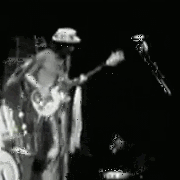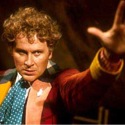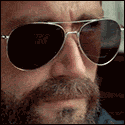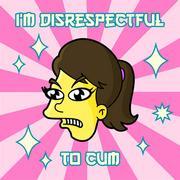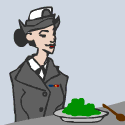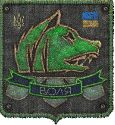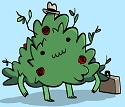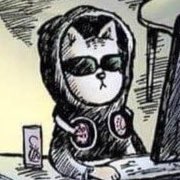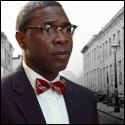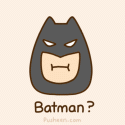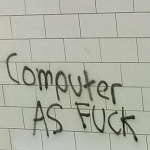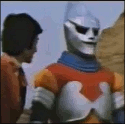|
Handling the Undead by John Ajvide Lindqvist. While not quite as interesting or sublimely beautiful as Let the Right One In, this is still one of the best zombie books I've read and the most interesting take on the idea of the undead since Night of the Living Dead. Lindqvist's zombies do not infect humans and don't attack the living (there are only two actual attacks by a zombie in the entire novel and both are provoked), rather they mostly just try to go home and resume their normal lives (although with almost no brain activity, decaying bodies, and slow muscle movements they are very bad at it). The zombies only include people who have died in the previous two months in the capital of Sweden. Similar to how Let the Right One In used the premise of "vampires in a modern-ish setting" to tell a story that focused on love and acceptance, Lindqvist uses the setting of the dead rising from the graves to tell a story that focuses on how people deal with the deaths of family members and the idea of their own mortality. The novel follows three main plotlines that only intertwine with each other very lightly. One plotline follows a man who's wife dies in a car accident about 20 minutes before the "Awakening", another is about an old man who digs up his grandson from the grave, and a third is about a young woman and her grandmother and their reaction to the grandmother's dead husband coming back. While Let the Right One In had a clear A-plot with two subplots that were there to help prop it up and reinforce the themes, Handling the Undead gives equal measure to all three of the main plotlines. Overall, I liked the parts about the old man the best, his interactions with his mummified, unmoving grandson were quite moving. Readers who were unable to stomach Let the Right One In may be better off in this novel. While there are still some disturbing scenes (some of the zombies are in very bad shape and described in almost gleeful detail), there is nothing on the level of Hakan's pedophilia antics or (large spoilers) Eli's castration. Overall, I'd give it a 4/5.
|
|
|
|

|
| # ? May 14, 2024 04:56 |
|
The Cyberiad by Stanislaw Lem. It's a collection of short stories about 2 constructor robots. Some of the stories are fantastic however there were some that bored me due to excessive wordplay. Ultimately, it's worth a read.
|
|
|
|
1493: Discovering the New World Columbus Created (Charles C. Mann): This is the sequel of sorts to 1491 and Mann gets into the less talked about implications of European and African contact with the West. You know about maize, tobacco and some diseases, but how about the impact of the silver trade... in China? The New World was shaped by European tenacity and greed, some of it to the point of obliviousness and they kept importing more Africans to replace the ones they lost (and the natives they lost) and more Africans kept escaping to the wilderness and becoming adversaries. It stays very good as long as Mann keeps it within a couple of centuries. The more modern stuff didn't amuse me as much, but thankfully there isn't that much of that.
|
|
|
I finally got around to reading The Road. I got through it during a slow day at work and just felt drained and upset all evening. Now I'm slightly obsessed with disaster preparation. Even though I guess if there's a meteor or nuclear winter or whatever, it won't really matter because all of the plants will die and then everything will eventually die.  I really loved the book though, it's obviously a beautiful, dark, upsetting read. 5/5
|
|
|
|
|
Lampsacus posted:I've envious you get to read the series not knowing what's ahead of you. If you thought the first book was good, oh.. you wait! I'd love to hear your reactions after each volume. Especially after.. No, I won't hint at anything. : p Ah, now you've got me all excited to continue the series. Which I probably will now that I've finished The Shadow Patrol by Alex Berenson. To quote my Goodreads review, me, on goodreads posted:Probably my third favorite in the series, after the first and The Silent Man. Since this is my favorite thriller series out of the many thrillers I've read, that's saying a good deal. After an attack based heavily on the late-2009 suicide bombing at Camp Chapman, Khost, Afghanistan cripples a CIA outpost in Afghanistan, John Wells is sent in tasked with investigating suspicions of a mole capitalizing on the chaos. In the meantime, Wells gets caught up in protecting an American soldier from a group of rogue US soldiers working with the CIA mole to buy heroin from the Taliban to sell in Europe, who have already killed another American soldier to cover it up. Like the earlier Wells novel The Midnight House, this one reads more like an investigative mystery than a spy novel, downplaying action in favor of mystery and intrigue (though, thankfully for an action junkie like me, there were more combat scenes in this than in Midnight House), and the mystery's definitely compelling. Though the answer was a good bit less creative than the out-of-left-field, mind-blowing solution to Midnight's mystery, the path it took to get there was gripping enough that I don't particularly mind. Overall, a great novel in a great series.
|
|
|
|
Just finished reading Half-Blood Blues by Esi Edugyan and all I can say is wow. That was fantastic. The writing, the authenticity, the characters, everything was just perfect. For anyone interested it's about a group of Jazz musicians, mostly of African descent, living in Germany just before and during the early years of the war. It switches between that and the 90s where the aged main characters are returning to Berlin for the first time since they fled the war for a Jazz festival. It's a very gripping and emotional story, I couldn't put it down.
|
|
|
|
I just finished Leviathan Wakes by James S.A. Corey. It was touted to me as one of the best sci-fi books of last year, but I finished it with a definite sense that it could have been much better. There were parts that I enjoyed, but a lot of the character "development" was just repetitive to me, and I got a little tired of some of it. On the whole it was a decent book, but definitely not great.
|
|
|
|
Afghanistan: A Military History from Alexander the Great to the Fall of the Taliban by Stephen Tanner. The whole sorry tale, a land that has seen more than its share of misery. The book itself is a pretty standard narrative, light enough to attempt to condense 2000 years of history into 300 pages. The last few chapters, where the author departs from narrative history into speculative analysis, was not good. The book was written in 2002, not nearly enough time had passed to get any real perspective on the Soviet invasion, much less the USA invasion. The author has some suggestions for how this country could possibly be run as a positive contributor in world affairs, some of which are bizarre. I was most put off by the sunny appraisal of the USAian invasion, which seems to contradict more recent thinking on the matter.
|
|
|
|
Porkchop Express posted:I just finished Leviathan Wakes by James S.A. Corey. It was touted to me as one of the best sci-fi books of last year, but I finished it with a definite sense that it could have been much better. There were parts that I enjoyed, but a lot of the character "development" was just repetitive to me, and I got a little tired of some of it. On the whole it was a decent book, but definitely not great. I ordered it this morning. I hope I like it more than you.
|
|
|
|
Just finished reading The WIndup Girl and Ship Breaker by Paolo Bacigalupi. Both are great novels, though Ship Breaker is a young adult novel so it's much less brutal and much more naive than the Windup Girl. Im looking to read the Drowned Cities, that new novel he finished just recently. Bacigalupi's worlds suck you in pretty hard. Anyone read it already?
|
|
|
|
Debt: The first 5000 years by David Graeber. You should read this book. Full stop. It's a great, compelling read that examines how we as humans have thought of debt over our entire history, and advances some really interesting theories about how ideas of debt have shaped everything they touch. It's one of those books where your brain's on fire after you finish reading it whether or not you agree with everything he says. Read it. Benagain fucked around with this message at 15:06 on Jun 1, 2012 |
|
|
|
nate fisher posted:I ordered it this morning. I hope I like it more than you. For what it's worth, I just finished it as well, and I quite enjoyed it. I thought it was kind of a cool amalgamation of detective noir, horror and sci-fi, though if you're looking for "hard" science, look elsewhere. At the least, it was good enough to make me want to read the forthcoming sequel...
|
|
|
|
It wasn't terrible and I will probably end up reading the next one, I just thought it could have been done a little better. The overall idea is pretty good but there were just some parts where if felt like the author was just kind of phoning it in.
|
|
|
|
I got around to finishing The Brothers Karamazov by Fyodor Dostoevsky. It came across as awfully moralistic and pro-religious for being written by a lifelong agnstic. Also incredibly mysogynistic. I can't think of a single female character who isn't either utterly insane or a complete bitch at heart.
|
|
|
|
Meaty Ore posted:I got around to finishing The Brothers Karamazov by Fyodor Dostoevsky. It came across as awfully moralistic and pro-religious for being written by a lifelong agnstic. Also incredibly mysogynistic. I can't think of a single female character who isn't either utterly insane or a complete bitch at heart. Thats Dostoevsky. The dude wrote awfully sad and religious stories about practically insane people. Read Crime and Punishment. If it wasn't for the (somewhat) bright religious ending the novel could be counted as absurdist.
|
|
|
|
Just finished "The Mark of the Golden Dragon: Being an Account of the Further Adventures of Jacky Faber, Jewel of the East, Vexation of the West, and Pearl of the South China Sea (Bloody Jack #9) by L.A. Meyer. I don't know why I continue reading this series because it's really dragging at this point but I still somehow feel compelled to continue. The next book doesn't come out till October, but I'm really hoping it's the last of the series so I can stop tearing my hair out after each novel.
|
|
|
|
Benagain posted:Debt: The first 5000 years by David Graeber. I just finished reading the ebook preview of this. Very interesting so far. I might need to find a real copy from a library somewhere because they want $17.00 for the ebook. Debt indeed.
|
|
|
|
The Way of Shadows by Brett Weeks A surprisingly mature and dark book revolving around a pseudo-assassin in a fantasy land that's on the brink of war.
|
|
|
|
I've just completed: The End Of Mr Y ... by Scarlett Thomas The Orange Girl ... Jostein Gaarder (USER WAS PUT ON PROBATION FOR THIS POST)
|
|
|
|
I finished 1984 by George Orwell last week and loved it. It didn't feel out of date at all, was easy to read and absolutely gripping and bizarrely realistic. Amazing. Before that, continuing my vein of "stories about poor young people in cities" I read Slaves of New York by Tama Janowitz. It was very disjointed and hard to follow, but I enjoyed it for the most part. It was interesting to read about hipsters in the 80s.
|
|
|
|
Two true-crimish books: The Poisoner's Handbook: Murder and the Birth of Forensic Medicine in Jazz Age New York by Deborah Blum. This is the third book I've read about the "beginnings" of crime forensic science, each one pointing out a totally different start. Anyway, this book is about two guys, one who rationalized the medical examiner's office in NY and his chemist, who came up with a lot of the tests for poisons that previously went undetected. The book does have an overall arc, but the meat is case studies of crimes where forensic medicine made a difference. It was really well written. The Devil In The White City by Erik Larson, in equal parts about A) The creation of the 1893 worlds fair in Chicago focusing on the architects involved and B) a serial killer operating in Chicago at the time. The connection between these two strands seemed pretty strained to me, but there's no question the book's story really moves along. I'm not entirely happy with the way the author depicted events that there couldn't possibly be any documentation for (something he cops to in the afterword), which could at least be justified for narrative purposesóbut I was more annoyed at the way he sticks thoughts into protagonists' head without documentation when there's no need for it or accepts their later accounts of their thinking without question. For example, after the media starts reporting on the horrible details of the crimes being uncovered by Detective Geyer, Larson writes, "Geyer paid little attention to his new celebrity." This sentence is unsourced. If it came from anywhere, it almost had to have come from something Geyer himself wrote after the fact, about his involvement in the case. If you read something by a normal person catapulted onto the front pages that said "I don't care about fame", would you believe it? Would you not be slightly skeptical? What pissed me off about this sentence and the others like it is that they were superfluous to the story, adding nothing. There was no need to include a protagonist's thought that was either a made-up by the author or a self-serving one by a protagonist. I know this is a tiny objection, but what the hell. It bugged me. I shouldn't care: this isn't an academic work of history, it's a popular history narrative, and the standards are different. Larson is not even close to the worst offender in this kind of thing either. But it still bugged me.
|
|
|
|
dokmo posted:
While it doesn't bother me that much I can understand your point. What I really liked the book was how interesting he made the Worlds Fair to the point I didn't care about the serial killer.
|
|
|
|
Middlesex by Jeffrey Eugenides. I thought it was good storytelling with a bit of an atypical main character. Other than that I couldn't really see what was deserving of a Pulitzer about it. 4/5 Now I'm starting The People of Paper, which Goodreads says I should enjoy.
|
|
|
|
|
I guess it doesn't quite count given the name of the thread, but I almost finished American Gods by Neil Gaiman. It was due back to the library on recall and I didn't have an overwhelming urge to acquire it through other means. How did you all feel about the book? From the description I really thought I'd enjoy it a lot more, but something was missing. For one, I didn't find myself caring too much about Shadow as a character. I was also expecting a lot more piercing social commentary and observation, but that didn't really come either. I wouldn't say I disliked the book either, though. The lore between chapters was really cool, and the atmosphere and environment that Gaiman creates is absolutely perfect for the story (at least as far as I read). Overall though, the only thing that kept me turning the pages was a general desire to find out what was going to happen (normally a bad sign, I've noticed). Goky fucked around with this message at 04:51 on Jun 6, 2012 |
|
|
|
I liked it, but the pace really slowed up in the middle. I'm guessing you stopped around the funeral parlor time, because that's the time I struggled with the book. I did like the twist ending however, and it was a worthwhile read for me once I got there. But I had a feeling that he had a goal/obligation to reach a certain number of pages that he had to fill.
|
|
|
|
I've just finished reading Dandelion Wine by Ray Bradbury, which is a little depressing as I heard about his death today and the book is essentially an idealization of his childhood and a drat fine one at that. That it's an idealization and not Depression Era reality makes it all the more poignant. When you're a kid, you may not notice that times are hard. You find joy in playing with your friends, telling each other stories, enjoying the good things. That's what this - and Bradbury in general - is to me.
|
|
|
|
I finished The Pale King by David Foster Wallace. It was amazing, and supposedly only 1/3 finished when he killed himself. A meditation on boredom and depression and neuroses, through the eyes of several IRS employees. A lot of seemingly random passages that don't go anywhere. "False-starts and dead-ends" is how someone put it. Some of the longer parts, like the character sketches of Fogle and Rand, were my favorite parts. It definitely left me wanting a lot more. Thankfully, I've yet to read Infinite Jest. escape artist fucked around with this message at 16:57 on Jun 7, 2012 |
|
|
|
I just finished Mark Kurlansky's Salt. I remember some goon said to avoid the softcover since it had a really bad error in it, so I specifically looked for a hardcover copy in the library. For the most part I found it really interesting (I would have titled the chapter about Gandhi's salt march "British bullshit about Salt" myself) though I thought it sort of dragged the last couple of chapters. I liked it quite a bit, so I may look into his other books one of these days.
|
|
|
|
Just finished GRRM's A Game of Thrones on my Kindle. I've never seen the HBO series though, so now I can become cultured.  I'm not exactly a fan of medieval fantasy (but I tear through other fantasy like nothing else), but A Song of Ice and Fire is shaping up to be really good. The writing was solid; nothing special, but that's probably for the best because of all of the names. I'm not exactly a fan of medieval fantasy (but I tear through other fantasy like nothing else), but A Song of Ice and Fire is shaping up to be really good. The writing was solid; nothing special, but that's probably for the best because of all of the names.  I think I'm going to reread it before jumping into the thread here.
|
|
|
Autumncomet posted:Just finished GRRM's A Game of Thrones on my Kindle. I've never seen the HBO series though, so now I can become cultured. Don't stop now! You only have another 865 000 pages to go until you're current! I read all five last month on my kindle. I read the hedge knight yesterday. It's quite a comforting universe to be immersed in. I really hate fantasy as a genre though, but GRRM makes the whole thing very human somehow so it's alright.
|
|
|
|
|
tuyop posted:Don't stop now! You only have another 865 000 pages to go until you're current!
|
|
|
|
I just finished book 1 of John Dies At The End. I'm loving it so much, I can't wait until the very very end of the entire book. It's like Lovecraft and the guys who wrote Pineapple Express got together and wrote a book. And it is glorious. I should have read this way sooner.
|
|
|
|
I just finished book 5 of ASOIAF. I had it since release, but I put it off because a) it is going be forever until book 6 comes out, and b) it has been around 5 years since I read book 4 so I couldn't remember who was alive, where they was at, or who many of the minor characters were. I caught up on everyone using Wiki, but still several times I had to go back to Wiki to see who a character was. Overall I enjoyed the book, but it is weaker than the first 3 books. It did remind me of book 2 because it felt like one big set-up for the next book. The main problem was too many characters that I felt like the story could of done without. The book excelled when dealing with the characters that have been around since the start, but I found myself being pissed wasting time with other bullshit instead of moving the story forward. It seemed like Martin was doing one big long cock tease on most parts. He purposely tricks you into thinking that something is going to happen just to jerk the rug from out under you. He has done this with the other books, but usually there is some pay off by the end. Only a few times reading ADWD did I feel like the story was paying off. Also there is no way the TV show is going to be able to support all of these characters. It will fall apart if they try.
|
|
|
|
Stayed up last night to finish Redshirts by John Scalzi. It's about the flagship of the Universal Union, its ccrew, the appalling death rate of away team members, and what happens when they start comparing notes. Loved the hell out of it. Great book, and the three codas at the end really tie the whole thing together.
|
|
|
|
Finished up The Night Circus by Erin Morgenstern. I liked it a lot. Complaints I've seen are about thin characterization of the protagonists, and while I can see their point, I care much less about them and much more about the Circus, and the colorful rest of the cast more than made up for it.
|
|
|
|
Finally finished JR by William Gaddis, and I think it's taken me literally a year, on and off. I've got a post on it in the books you couldn't finish thread so if anyone wants to read about why I found it so difficult can read that. But, as one of the characters says "take nothing to it get nothing out of it, was read to be written out loud, what's so hard about that?" Back of the book synopsis is "school child creates his own Bain Capital-type company, understanding how to mitigate tax and literally nothing else" but that's really a very small part of it. The 20-so characters, most of them connected in a stagily unbelievable way, are all touched by JR corp, but they aren't really impacted by it. They're all following their own trajectories, left ultimately unaffected by the titular corporation. It's also pointedly anti-climactic, a good example being an apartment, filling up throughout the novel with paper, cans of film and boxes on boxes of matches, doesn't burn down. Instead the fire-marshal issues fines. This is kind of important I think because the book's not an entertaining jaunt of fantasy. If the absurd JR corp affected anything, it would contain the damage to within the covers of the book. Instead, by letting the action be dictated by more realistic bankers, businessmen and politicians, the book directs the readers thoughts to their real-world counterparts. The financial stuff is really good, well researched and depressingly familiar considering how old this book is. Perhaps the majority of the book is taken up with a set of writers, not writing anything and complaining about their bastard publishers. A lot of it reads as a manifesto for this brand of archly difficult book, albeit one fringed with utter doubt. There is one character in particular that is impossible to read as anything other than romantic self-mythologizing. It's difficult to write off though entirely, as the arts are as tied up with money as education (another of the book's themes), and the characters aren't randian ubermensch, but flawed and believable. I still wish it was more digested though. Even shifting the art-form from literature to painting would have done the trick. I mentioned education and apparently, society is in decline: people don't read books; don't listen to symphonies; or speak correctly anymore. The first half has an aghast fascination with a Long Island school, described by it's governor as a warehouse for delinquents until they are old enough to be imprisoned. Drugs and pregnancy are rife and children run about uncontrolled stealing cars, robbing people and ordering porn from the backs of comics. But the emotional core of the book is with these uneducated people, married to the clever-but-weak intellectuals. They aren't objects of scorn, but fuel for anger at those with power who have forgotten about them. It's patronizing, but Gaddis isn't an unalloyed classist. In summation, the book demands your full attention to get anywhere with it, both for deciphering the prose and figuring out the plot but carries real emotional weight if you carry it. It's also slick with a constant stream of jokes old and new, and a steadily increasing body-count. Also he drew some tits on a dollar sign.  p.s. look at this ugly loving cover  now look at the lovely first edition's 
|
|
|
|
Today finished Jenny Woolf's The Mystery of Lewis Carroll, which goes to great lengths to separate fact from fiction in discussing its subject. Woolf combines Carroll's (unfortunately heavily redacted and tampered with by his family after his death) diaries and letters, books and letters by those who knew him, and his recently rediscovered bank ledger, and applies no small number of educated guesses to fill in the blanks. What real or imagined sins did Carroll feel such crushing Christian guilt over? Did he really have the hots for Alice's older sister (or vice versa)? Why did he seem to alternate between being a mischievous iconoclast and a moralistic old fuddy-duddy? Questions like these aren't (possibly can't be) satisfactorily answered, but Woolf does establish that Carroll was not a sexual pervert, or a pedophile, or a drug addict. The picture of Carroll that emerges is that of a man both a product of his time (Victorian sexual repression plus his own especially hosed-up church situation driving him to seek the company of prepubescent girls for whom he wouldn't have sexual feelings, which circuitously led to the Alice books' existence) and a man far ahead of his time; he would've made one hell of an awesome weblogger.
|
|
|
|
 Mr Briggs' Hat: A Sensational Account of Britain's First Railway Murder by Kate Colquhoun. A wealthy businessman in 1864 London gets into the first class railway car on his way home late at night. His body is found dumped beside the tracks, thrown out of the moving train after being beaten. All that remains in the car is blood and a squashed hat. This is the story of the search for a suspect, the apprehension of that suspect, his trial, and the aftermath. There are a lot of smart touches in this book. The author gives amounts of money in understandable terms -- eg that hat cost three weeks' salary for a journeyman tailor. She doesn't tip the ending, even while writing about the effects of actions far in the future. She explores the world of the story with a good eye as to what would be interesting to a 21st century reader -- hats, high class pawn shops, the primitive police and court procedure of the time. Well written and well sourced.
|
|
|
|
Myrmidongs posted:I just finished book 1 of John Dies At The End. I'm loving it so much, I can't wait until the very very end of the entire book. It's like Lovecraft and the guys who wrote Pineapple Express got together and wrote a book. And it is glorious. I should have read this way sooner. Finished the book last night. Loved it from start to finish, and didn't see the end until it was too late. A++, 5 golden manbabies and all that. I really hope he finishes his sequel.
|
|
|
|

|
| # ? May 14, 2024 04:56 |
|
Just finished, for the third or fourth time, Charles Willeford's Sideswipe, the third in his series of novels about Miami homicide detective Hoke Moseley (the first is Miami Blues, which was made into a movie in 1990 starring Fred Ward, Alec Baldwin and Jennifer Jason Leigh.) Willeford's an interesting crime author - all his characters seem to be either sociopaths or people with Aspergers. Everybody behaves properly, as far as the world of Willeford's novels are concerned, but not quite right for us. Sort of a Sartre + Chandler + Miami Vice, filtered through, say, Abed from Community or Sheldon from Big Bang Theory.
|
|
|






